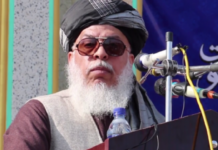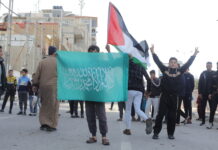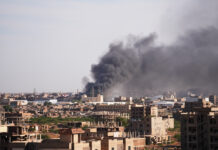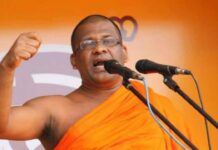A confidential 500 page report by United Nations monitors accuses Kenyan soldiers in the African Union peacekeeping force in Somalia of facilitating illegal charcoal exports from the port city of Kismayo, a business that generates millions of dollars a year for militants seeking to topple the government, Mohammed Kahiye writes from Nairobi.
The case of the failed ban on Somali charcoal outlined in the report highlights the difficulty of cutting off Al Shabaab militants’ funding and ensuring compliance with UN sanctions when there is little appetite for enforcing them on the ground.
The UN Monitoring Group’s report is likely to elicit new criticism of Nairobi from Somalia’s government, which has accused Kenyan troops of taking sides in the recent clashes in Kismayo and suggested they should be replaced by a more neutral force.
The Kenyan military denied the allegations in the UN Monitoring Group’s latest annual report to the Security Council’s sanctions committee on Somalia and Eritrea.
The group said Somali President Hassan Sheikh Mohamud asked AMISOM in October 2012 to keep Kismayo port closed to commercial traffic, including charcoal. But it said he was unaware that former Prime Minister Abdiweli Mohamed Ali Gaas had already asked the Security Council’s sanctions committee to review the ban.
The group said an AMISOM commander lied to the president. The report stated: “As late as 26 October 2012, the AMISOM Deputy Force Commander for Operations and Plans, Major General Simon Karanja (of Kenya), assured the President that the port was closed and there was no shipping traffic, while he knew otherwise.
“When it became clear that the Security Council would not lift the charcoal export ban, the KDF (Kenyan defense force), Madobe and his Ras Kamboni forces took the unilateral decision to begin the export of charcoal from Kismayo port”.
Subscribe to our newsletter and stay updated on the latest news and updates from around the Muslim world!
Once that decision was made, the charcoal export business in Kismayu, which the Monitoring Group said is known to have the highest-quality charcoal in Somalia, resumed in earnest.
Colonel Cyrus Oguna, a spokesman for the Kenyan military, which has been battling Al Shabaab in Somalia since October 2011, said Kenya was not aiding the charcoal exports in any way. He said: “The Kenya Defense Forces is not at the sea port. The port is being managed and supervised by a committee put in place by the administrators of Jubaland.”
Rival militias are battling for the control of the strategic port city after Ahmed Madobe, leader of the Ras Kamboni militia and a former warlord became leader of the Jubaland region, which includes Kismayo, in May.
The Security Council banned the export of charcoal from Somalia in February 2012 to cut off one of the main sources of income for Al Shabaab, which has been fighting for control of Somalia for nearly 10 years and enforces a strict version of Shariah law in the areas it controls.
The situation remains tense though the Mogadishu government, which initially opposed Madobe, is letting him stay on as interim leader. Kismayo is a lucrative prize for clan leaders, bringing in good revenues from charcoal exports, port taxes and levies on arms and other illegal imports.
Leaked Letter
Somalia’s Foreign Affairs Minister, Fowzia Hajji Yusuf Adan, wrote in a letter leaked recently leaked that the Kenyan contingent of the African Union Mission in Somalia has caused “heavy civilian casualties” in Kismayo by using “high caliber weapons” and the commander of AMISOM Sector II has shown “incompetence”.
The protest letter to the African Union, which is titled “Extremely Urgent – Kismayo conflict,” accuses the Kenyan forces of complicating the crisis in Kismayo and calls for the immediate deployment of multinational African Union forces that will “operate under the direct mandate of AMISOM” in Mogadishu.
The letter, dated June 30, also called for an “immediate independent inquiry” of the incidents that led to the arrest of Colonel Abass Ibrahim Gurey, deputy brigade commander of the Somali National Forces.
As part of the infighting that ensued following the arrest of Abass, the government claims that 65 people were killed and 155 injured.
The letter accuses AMISOM Sector II Commander Brigadier Anthony Ngere of abuse of power by arresting Abbas. The letter also stated: “[Ngere’s] act was certainly a blunt abuse of power since Col Abbas has neither committed a crime nor the Somali Federal Government was notified of his arrest”.
The letter called for the appointment of new AMISOM political officers for Kismayo “whose nationalities will be different from the AMISOM contingent in Sector II.” Kenyans are the dominant forces in Kismayo, which falls under Sector II.
The Kenyan AMISOM forces, in conjunction with the Somali forces, took over Kismayo from Al Shabaab in September 2012.






















